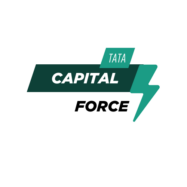Building financial stability doesn’t happen overnight. It’s the small, consistent habits that add up over time, shaping a healthier financial future. Whether your goal is saving more, reducing debt, or making smarter spending choices, small daily and monthly habits can have a significant long-term impact.
Managing money well isn’t just about making big investments or sudden budget overhauls. It’s about developing sustainable practices that keep your finances on track. For individuals and businesses alike, bookkeeper services can help organize finances, track expenses, and ensure accountability. But even without professional help, small adjustments in your financial routine can lead to greater financial freedom over time.
Automate Your Savings
One of the easiest ways to build financial security is by automating your savings. When you set up automatic transfers from your checking account to your savings account, you remove the temptation to spend that money elsewhere.
- Start small – Even transferring $10-$50 per paycheck adds up over time.
- Use separate accounts – Having a designated savings account makes it less tempting to dip into for daily expenses.
- Increase savings when possible – When you get a raise or a tax refund, increase your automatic transfers.

Consistently saving a little at a time can lead to big financial security in the future.
Track Your Spending
Most people are surprised by where their money actually goes when they start tracking their expenses. Small, daily purchases can add up quickly, affecting long-term financial goals.
- Use a budgeting app – Apps like Mint or YNAB can track expenses and help categorize spending.
- Review your bank statements regularly – Checking transactions weekly helps you stay on top of your financial habits.
- Look for patterns – Identifying unnecessary expenses can help you make better choices.
Understanding where your money goes is the first step to controlling it.
Pay Yourself First
Instead of saving whatever is left over at the end of the month, prioritize saving before anything else. This means setting aside money for savings before paying bills or making purchases.
- Set a fixed savings percentage – Aim for at least 10-20% of your income if possible.
- Use direct deposit – Some employers allow you to split your paycheck into different accounts, making saving effortless.
- Treat savings like a bill – Consider it a mandatory expense rather than an option.
By putting savings first, you ensure you’re building wealth rather than just covering expenses.
Cut Back on Unnecessary Subscriptions
Subscription services can quietly drain your bank account if you’re not careful. Monthly charges for streaming services, gym memberships, and apps add up, even if you don’t use them often.
- Audit your subscriptions – Review all recurring payments and cancel the ones you don’t use regularly.
- Consider alternatives – Free versions of apps or shared streaming accounts can help save money.
- Bundle services – Some companies offer discounts for bundling services like phone, internet, and streaming.
Eliminating a few unnecessary subscriptions can free up cash for savings or more important expenses.
Round Up Small Change for Big Savings
Many banks and apps offer programs that round up your purchases to the nearest dollar and deposit the difference into a savings account.
- Use spare change apps – Apps like Acorns invest your rounded-up change automatically.
- Enable bank savings features – Many banks offer automatic round-ups that deposit extra cents into savings.
- Save manually – If you prefer, you can transfer leftover change from cash purchases into a savings jar.
Over time, those small amounts add up, turning spare change into meaningful savings.
Make Extra Payments on Debt
Paying just the minimum on credit cards or loans can keep you in debt longer. Making even small additional payments each month can reduce interest and help you pay off balances faster.
- Round up payments – Instead of paying $48.75, round it up to $50 or $55.
- Apply windfalls to debt – Use tax refunds, bonuses, or extra cash to pay down high-interest loans.
- Prioritize high-interest debt – Paying off credit cards first saves money on interest in the long run.

Even small extra payments can cut years off your debt repayment timeline.
Be Mindful of Impulse Spending
Impulse purchases, especially small ones, can quickly derail a budget. Practicing mindful spending helps you make better financial decisions.
- Follow the 24-hour rule – Wait a day before making non-essential purchases to see if you still want them.
- Use cash instead of cards – Spending physical cash makes you more aware of how much you’re using.
- Ask yourself if it’s a need or a want – Pausing to evaluate a purchase can prevent unnecessary spending.
By being intentional with spending, you can keep more money for your bigger financial goals.
Small Steps Lead to Big Results
Improving your financial health doesn’t require drastic changes. Simple, consistent habits—like automating savings, tracking expenses, reducing subscriptions, and making small extra debt payments—can create lasting financial stability. The key is to start small and stay consistent. Over time, these small money habits will make a big difference in your financial future.



